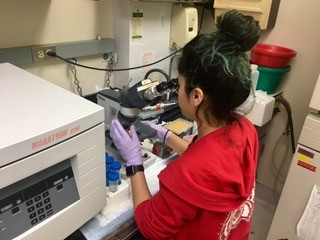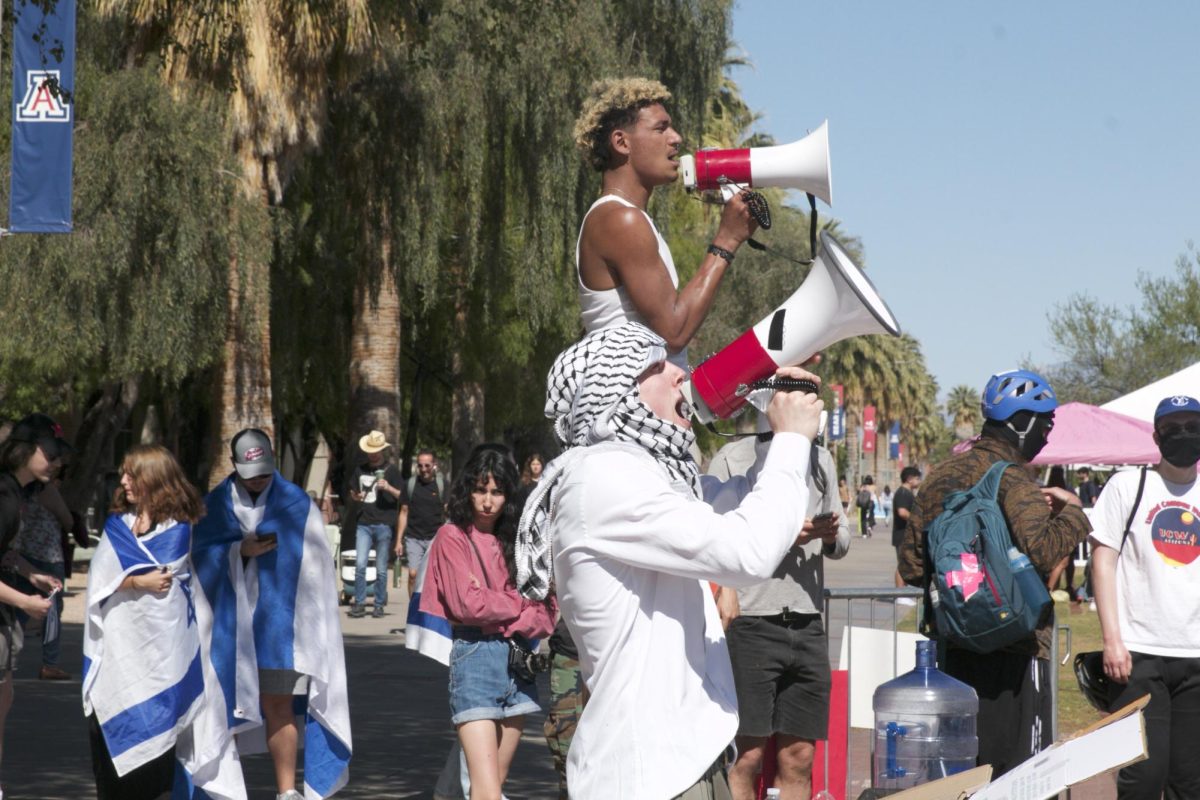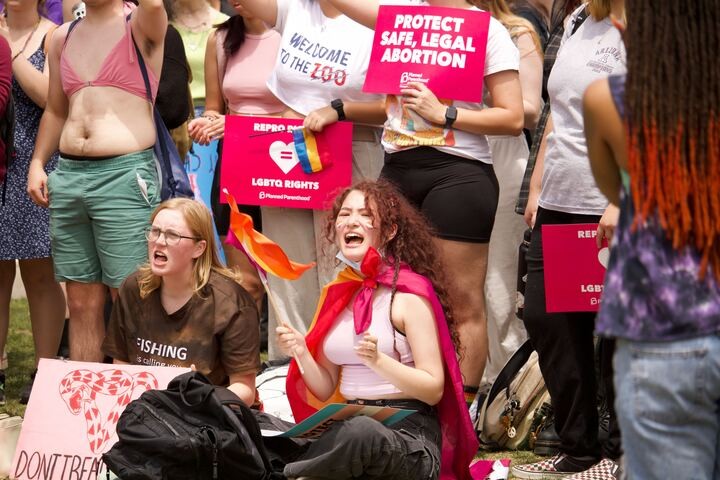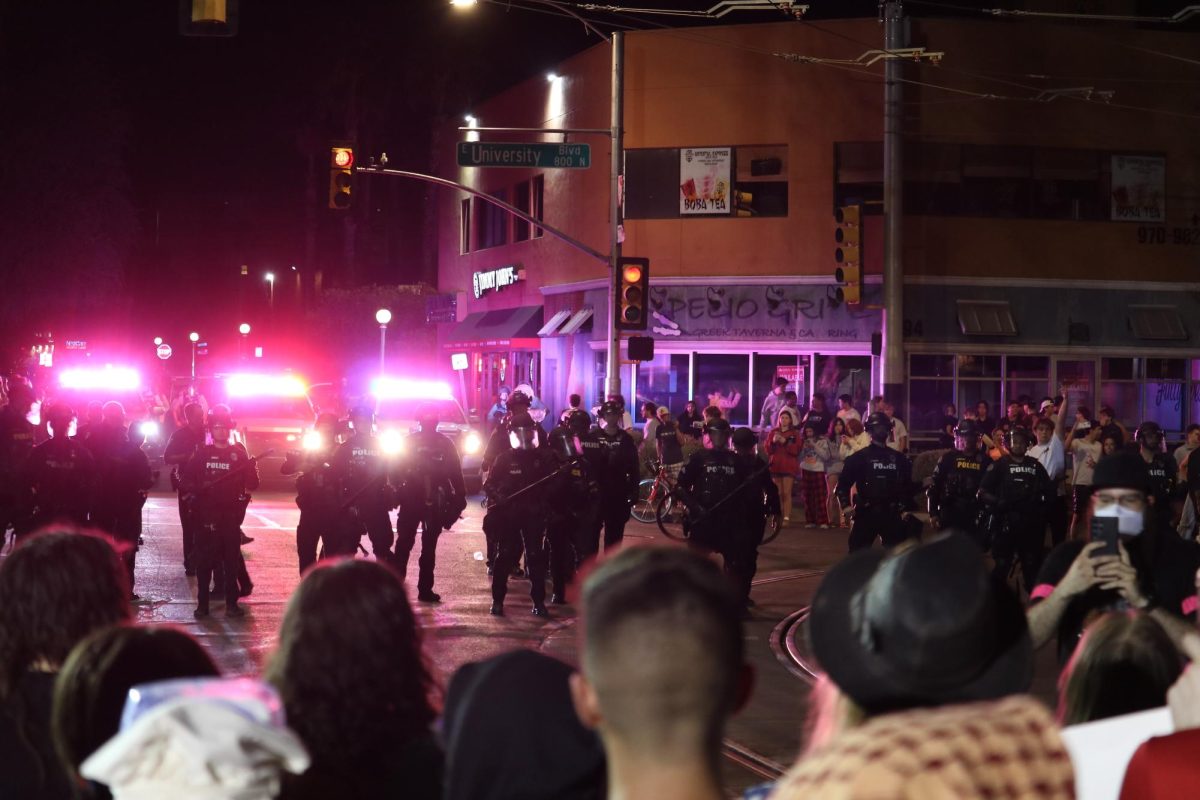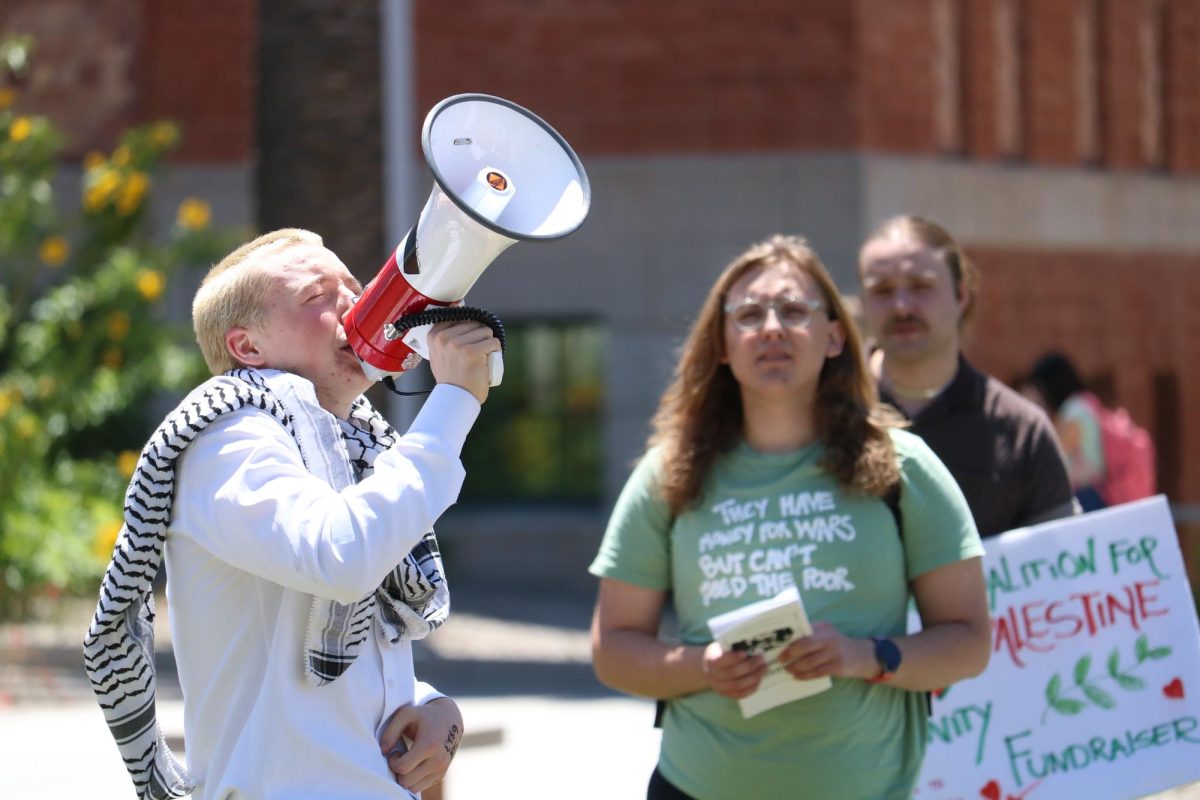Megan Molina is a Ph.D. student here at the University of Arizona studying immunobiology. Her research emphasis is on the best ways to use anti-cancer drugs to prepare a patient’s immune system for bone marrow transplants. Courtney’s Courage donated $40,000 to the University of Arizona Steele Children’s Research Center to support Molina’s research. Daily Wildcat reporter Ireland Stevenson talked with Molina recently. The interview has been edited for clarity.
Daily Wildcat Q: What made you want to pursue immunobiology?
Megan Molina A: I find the immune system is very fascinating, and it’s one of the least studied systems in the body, and it’s very complex. The more we learn about it, the more we realize we need to learn about it. There’s a need to study immunobiology to help discover diseases and find better therapeutics for those disorders and diseases.
DW Q: Where did you do your undergraduate work, and what made you continue your education in this program?
MM A: I attended the University of Arizona, studying physiology with my minor in psychology. I realized I really wanted to do research, and the UA has a very good immunobiology program and the collaboration with the hospital is really good. So there are a lot of translational pieces that you can get here that you can’t always get at other institutions.
DW Q: What kind of impact would you like your research to make?
MM A: I want to contribute to how we treat certain diseases and finding better means of treatment is a huge part of medicine. For what we study, which is bone marrow transplants, there hasn’t been many huge advancements as far as therapudics go in decades, and there’s still a need for those large advancements.
RELATED: Q&A: UA Faculty Highlight: 2018 TED Fellow Dr. Burçin Mutlu-Pakdil
GVHD, which stands for Graft Versus Host Disease, is a condition that occurs when donor bone marrow or stem cells attack the recipient, and is extremely prevalent, affecting almost half of bone marrow transplant recipients.
It is the second leading cause of death in these recipients right after malignant relapse. There is a huge need, and we need to find a better way to prevent GVHD. That’s what we’re doing here.
DW Q: What did you do to qualify for the $40,000 from Courtney’s Courage and the research program?
MM A: Well, it’s a pediatric oncology research fellowship, and there are very few Ph.D. students that study this specifically, so that narrowed it down. Then I just presented my research and I was chosen.
DW Q: Who has been your biggest mentor in your educational career?
MM A: There have been quite a few people that have played key roles in getting me here. I had my adviser at my master’s program, and he was very influential and encouraging when I first started research because its really hard to deal with failure all the time, and that’s a lot of what we do and still kind of stay motivated to keep doing research. He really helped me realize that it’s OK to fail as long as you always learn something from it and move on.
DW Q: What is your plan to do after you graduate?
MM A: Well, I do want to stay in academia, and I think I will pursue a post-doctorate, which essentially is an apprenticeship that you do after you finish your Ph.D. to continue doing research. And then after that, I eventually want to have my own lab to do my own research where I get to be the boss man.
Follow Ireland Stevenson on Twitter



